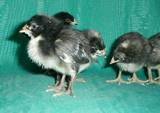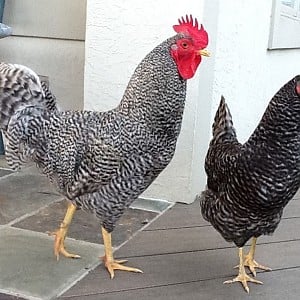General Information
- Breed Purpose
- Dual Purpose
- Comb
- Single
- Broodiness
- Average
- Climate Tolerance
- All Climates
- Egg Productivity
- Medium
- Egg Size
- Medium
- Egg Color
- White
- Breed Temperament
- Friendly,Easily handled,Calm,Bears confinement well,Docile
- Breed Colors/Varieties
- They are most widely known as barred, but they do also come in white.
- Breed Size
- Large Fowl
The Holland is a rather rare breed, unusual in that it is a non-Mediterranean class breed that lays white eggs. It is an excellent dual-purpose breed and a good laying hen with a calm, quiet temperament. It is becoming popular with small flock owners looking for a calmer white egg layer to add to a mixed flock for a colorful egg basket.
They are a good sized bird that is slow growing, but are good free range birds and excellent foragers. They are single combed with medium sized comb and wattles. They are quite weather hardy, tolerating both heat and cold. They come in two colors, barred and white, though barred is the primary color today. The hens will brood occasionally and they are excellent mothers.
They were developed in the 1930’s by the Rutgers University Breeding Farm in New Jersey, USA as a dual-purpose white egg layer, in response to the American market’s preference for white table eggs, since at that time all other dual-purpose breeds were brown egg layers. Various breeds were used in its development including birds imported from Holland (hence the name). Imports including The North Holland Blue as well as local Leghorns, Australorps and Barred Plymouth Rocks were used to create the Barred Holland. It was first introduced to the public in 1934.
It was recognized by the APA in 1949 and is on The Livestock Conservancy’s list as a breed in Critical status.

Holland eggs
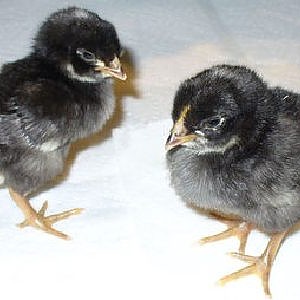
Holland chicks
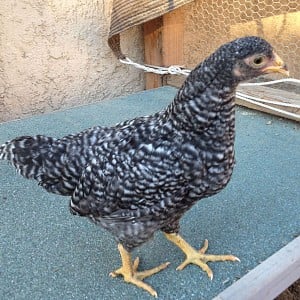
Holland juvenile
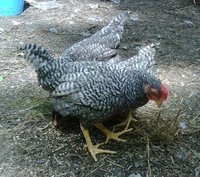
Holland hen
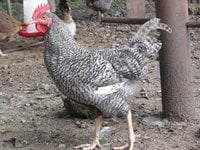
Holland rooster
For more information on this breed and their owners' and breeders' experiences with them, see our breed discussion here: https://www.backyardchickens.com/threads/chicken-breed-focus-holland.1022794/

